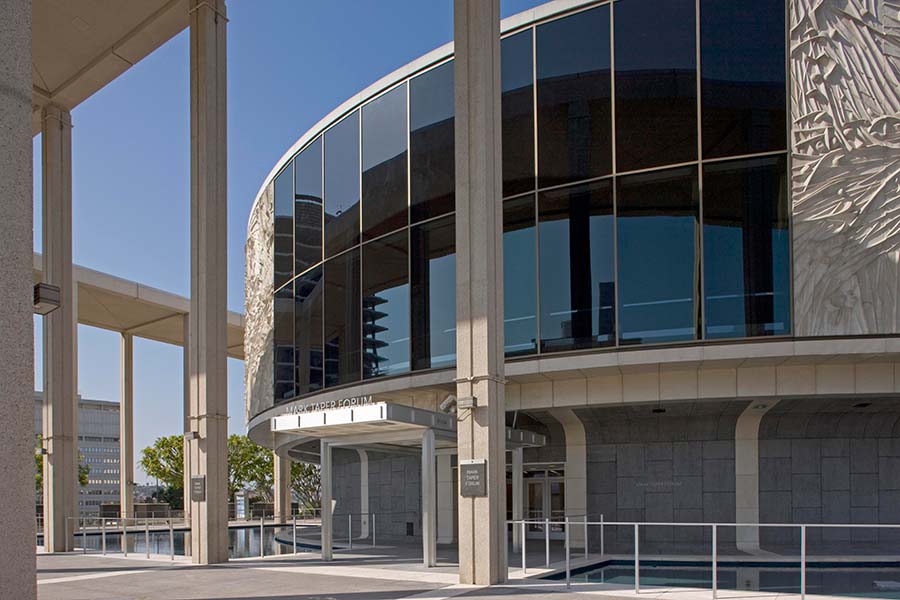When the COVID-19 pandemic shut down theatre production in early 2020, and in most cities that shutdown dragged on longer than anticipated—the current theatre season is the first full return for most major theatres—it was reasonably feared that some institutions simply wouldn’t survive. I overheard one leader of a major LORT company say that “no theatre was too big to fail.” But many theatres instituted layoffs, furloughs, and/or salary cuts, and not producing, of course, saved money. Federal relief money also helped keep many businesses afloat, as theatres took advantage of the billions in aid dispersed through the Shuttered Venue Operating Grant program.
Now that theatres are reopened, and are again spending money to put up shows and striving to draw audiences back to their venues, many have hit a perfect storm of cost inflation, anemic attendance, and donor fatigue. So far, this trend has not felled any large theatres. But a few months ago, Dallas Theatre Center announced layoffs and performance cancellations (though they did eventually announce a full 2023-24 season), and Oregon Shakespeare Festival is in the midst of a furious fundraising campaign just to keep its 2023 season running, let alone plan the next.
The most sobering news for the national theatre field came yesterday with the announcement that Center Theatre Group, L.A.’s leading theatre company, is stopping production at the Mark Taper Forum, its beloved midsized theatre, for the remainder of this season and all through what would have been the never-announced 2023-24 season, a decision that includes laying off or not filling 10 percent of staff positions. Productions at CTG’s much larger Ahmanson Theatre, which almost exclusively hosts national tours, will continue, while shows at its smaller Kirk Douglas Theatre in Culver City will be “limited” but not entirely paused. This all means that when the current production of A Transparent Musical closes at the Taper on June 25, it will be the last show in the space for a good long while. Larissa FastHorse‘s Fake It Until You Make It, which was to be the last show in a season featuring plays exclusively by women and non-binary writers, and was scheduled to start rehearsals in two weeks for an August opening, won’t be happening.
“It’s a huge blow,” said CTG managing director Meghan Pressman in a brief interview yesterday. She said that some programming reductions had been in the cards for a while, but as “recovery is happening more slowly than we want,” a more drastic and immediate solution was called for. “It became unavoidable,” she said.
Audiences are down between 20 and 40 percent, she estimated, and donations are down 20 percent from pre-pandemic times. (A New York Times report today added these details: Season subscriptions at the Taper are 35 percent below what they were before the pandemic shutdown, and subscriptions at the group’s main theatre, the Ahmanson, are down 42 percent.) These economic realities are hitting harder given inflation, Pressman said, and the 739-seat Taper—the theatre where Angels in America, Twilight: Los Angeles 1992, Zoot Suit, The Trial of the Catonsville Nine, Children of a Lesser God, and countless other essential American plays got their start—remains the most expensive space they program, on balance, given the cost of producing versus the income generated, even for a hit show. “It’s a big lift, and we could not handle another season of deficit spending,” Pressman said.

The timing is awkward, given that CTG just announced the hiring of their next artistic director, Snehal Desai, who is scheduled to start full-time at the post in August. In a statement, Desai said that he took the position “knowing we might have to take these drastic measures. I had hoped it wouldn’t be this soon.” He added, pointedly, “I did not take this new position to be the leader of Center Theater Group without the Mark Taper Forum. We unfortunately had to take the steps of pausing production at the Taper to ensure we will be here a year from now. Why I did move to CTG is to empower Angelenos through the power of storytelling and bring our community together through compelling artistic works. I am going to endeavor to do everything possible to resume season programming at the Taper. The opportunity in this moment is to use the Taper in innovative, community-minded ways over the next year, and to continue to welcome audiences to our programming at the Ahmanson and Kirk Douglas.”
Reached for a comment, playwright Larissa FastHorse wrote, “I am deeply sad for this production that we were starting in two weeks. CTG not being able to finish their first all female and non-binary season is rough. Then add the fact that the only play they aren’t doing this season is the first Native American play on that stage, and two underrepresented communities are being hit very hard today. However, I have known both Meghan and Snehal for a long time, and I have faith in their deep commitment not only to art, but to Los Angeles theatre. They will do all they can to make this right.”
Pressman told me that despite the pause in season programming, the Taper would not be entirely dark over the next year, and that she and Desai would look for ways to host events at the space, possibly a fundraiser. The task for the coming year is to shore up finances and, as she put it, get donors behind the mandate to “help us launch Snehal’s first season.”
The messaging task in the meantime might be even more urgent. “We’ve been putting on a brave face, saying, ‘We’re back, we’re strong,'” said Pressman, referring not only to CTG but to the theatre field writ large. “We need to send the message that, no, actually we’re hurting. We’re not back to normal. We need your support.”
Rob Weinert-Kendt (he/him) is the editor-in-chief of American Theatre.





